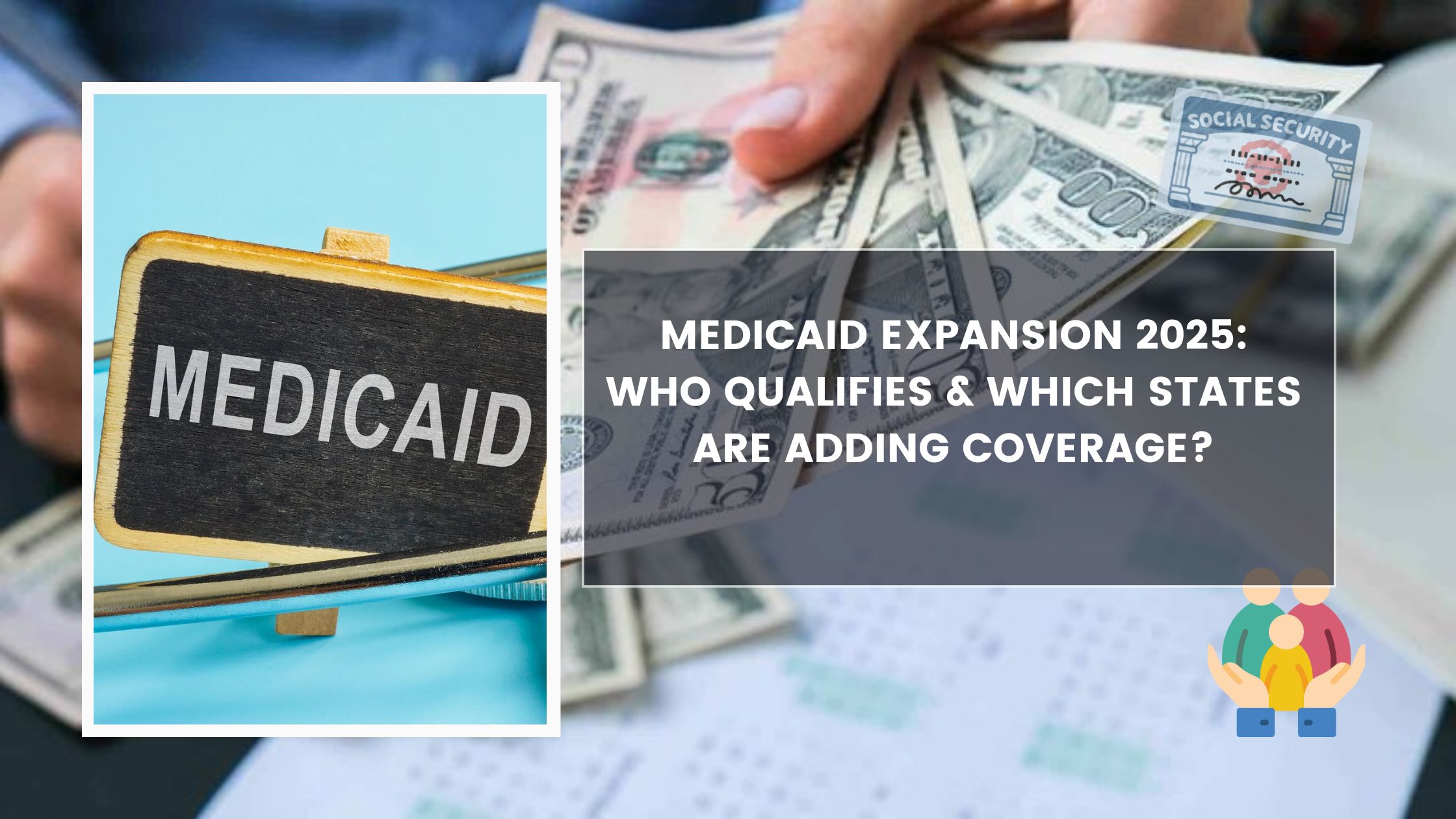Medicaid is a government program that provides free or low-cost healthcare to eligible individuals, mainly low-income families, pregnant women, children, and disabled individuals. In 2025, several states are expanding Medicaid to cover more people. If you’re wondering whether you qualify or if your state is making changes, this guide will explain everything you need to know.
What Is Medicaid Expansion?
Medicaid expansion refers to the extension of Medicaid coverage to a broader range of low-income individuals, mainly adults who were previously ineligible. Under the Affordable Care Act (ACA), states can choose to expand Medicaid eligibility, making healthcare more accessible for millions of people.
Who Qualifies for Medicaid in 2025?
Eligibility for Medicaid expansion varies by state, but generally, you may qualify if you:
- Are a U.S. citizen or legal resident
- Have an income at or below 138% of the federal poverty level (FPL)
- Are an adult aged 19-64 without dependent children (in many states)
- Are pregnant, a child, or have a disability (additional criteria may apply)
States Expanding Medicaid in 2025
Several states are adding Medicaid coverage in 2025 to include more residents. These states include:
1. North Carolina
North Carolina is set to expand Medicaid to cover an additional 600,000 residents, providing them with access to essential health services.
2. South Dakota
Voters approved Medicaid expansion, and it will take full effect in 2025, covering adults earning up to 138% of the FPL.
3. Wyoming
After years of debate, Wyoming is moving forward with expansion, aiming to increase coverage for low-income adults.
4. Florida (Pending Approval)
Legislators are considering Medicaid expansion, which could provide healthcare access to hundreds of thousands of uninsured residents.
5. Georgia (Limited Expansion)
Georgia is implementing a partial Medicaid expansion with work requirements, meaning some low-income individuals must meet employment conditions to qualify.
Benefits of Medicaid Expansion
Expanding Medicaid has several benefits, including:
- Increased healthcare access: More people can receive necessary medical care without financial burden.
- Lower uninsured rates: States with Medicaid expansion see fewer uninsured individuals.
- Better health outcomes: Preventative care and early treatments reduce hospital visits and serious illnesses.
- Economic boost: Healthcare expansion brings jobs and funding to states.
Challenges and Criticisms of Medicaid Expansion
Despite the benefits, some argue that Medicaid expansion has drawbacks, such as:
- Higher state costs: States must contribute to the expanded Medicaid funding.
- Provider shortages: More Medicaid enrollees can lead to longer wait times for services.
- Political opposition: Some lawmakers believe expansion encourages government dependency.
How to Apply for Medicaid in 2025
If you believe you qualify for Medicaid, follow these steps:
- Check your state’s Medicaid website to see if you meet eligibility requirements.
- Gather necessary documents, such as proof of income, ID, and residency.
- Apply online through Healthcare.gov or your state’s Medicaid portal.
- Wait for approval, which can take several weeks.
Conclusion
Medicaid expansion in 2025 is bringing healthcare to more Americans, especially in states that are newly adopting the program. If you meet the income and residency requirements, you may qualify for free or low-cost healthcare. Check your state’s policies and apply early to ensure you get coverage.
FAQs
What is the income limit for Medicaid in 2025?
The income limit for Medicaid expansion is typically 138% of the federal poverty level (FPL), but exact figures depend on household size and state policies.
Will every state expand Medicaid in 2025?
No, Medicaid expansion is optional for states. Some states are expanding in 2025, while others are still debating the issue.
Can I apply for Medicaid if my state hasn’t expanded it?
Yes, but your eligibility will be based on existing state guidelines, which may have stricter income and categorical requirements.
Does Medicaid expansion cover dental and vision care?
It depends on the state. Some Medicaid programs include dental and vision coverage, while others only provide basic medical services.
How long does it take to get Medicaid coverage after applying?
Processing times vary, but most applications are reviewed within 30-60 days. Urgent cases, such as pregnant women or disabled individuals, may be processed faster.

